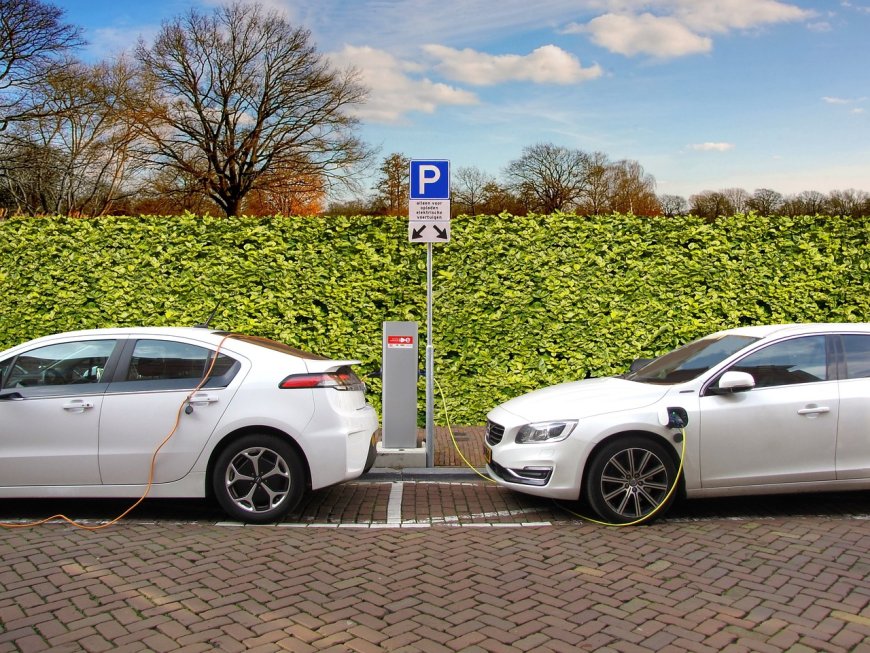Electric Cars vs. Hybrid Cars: What's Best for You in 2025?

The automotive industry is undergoing a massive transformation, driven by technological advances and a global push toward sustainability. As we step into 2025, the debate between electric cars (EVs) and hybrid cars remains a hot topic for eco-conscious consumers and savvy drivers alike. With both offering a cleaner alternative to traditional gasoline vehicles, the question is—which one is right for you in 2025?
Let’s break down the key differences, pros and cons, and important considerations that can help you make an informed choice.
Understanding the Basics
Electric Cars (EVs)
Electric vehicles are powered entirely by electricity stored in a battery pack. They have no internal combustion engine and emit zero tailpipe emissions. Popular EV models in 2025 include the Tesla Model 3, Hyundai Ioniq 6, and the Ford Mustang Mach-E.
Hybrid Cars
Hybrid vehicles combine a gasoline engine with one or more electric motors. They can switch between or simultaneously use both power sources to optimize fuel efficiency. Well-known hybrid models include the Toyota Prius, Honda Accord Hybrid, and Hyundai Tucson Hybrid.
Performance Comparison
Fuel Efficiency & Cost Savings
EVs: With no reliance on gasoline, electric cars offer significant savings on fuel. Charging an EV is generally cheaper than filling a tank of gas, especially with home charging setups or workplace incentives.
Hybrids: Though not as fuel-efficient as EVs in electric mode, hybrids offer impressive mileage—some models reaching over 50 mpg. They are ideal for long-distance driving without worrying about charging infrastructure.
To better understand your potential savings, it helps to look at regional electricity prices, for example, the average cost per kwh in texas offers a useful benchmark for estimating EV charging expenses.
Maintenance
EVs: Fewer moving parts mean lower maintenance costs. There's no need for oil changes, and brake wear is reduced thanks to regenerative braking.
Hybrids: More complex than EVs due to the dual powertrain, which may lead to higher maintenance costs in the long run compared to EVs, but still lower than traditional cars.
Environmental Impact
EVs: Produce zero tailpipe emissions, making them the greenest option on the road. However, the source of electricity (coal vs. renewable) and battery production do have environmental implications.
Hybrids: Emit fewer pollutants than gas-only cars but still contribute to carbon emissions due to the gasoline engine.
Driving Range & Infrastructure
EVs: Modern electric cars in 2025 offer ranges between 250 and 400+ miles. Charging infrastructure has significantly improved, with ultra-fast chargers and expanded networks in urban areas. However, long-distance road trips may still require planning.
Hybrids: Offer the best of both worlds—no range anxiety thanks to the gasoline backup and better fuel economy than conventional cars.
Cost & Incentives
EVs: Typically more expensive upfront, but prices are coming down. Government incentives, rebates, and tax credits in many regions make EVs more affordable in 2025.
Hybrids: Generally less expensive than EVs and still eligible for some incentives, though they may not qualify for as many perks as full electric vehicles.
Charging Convenience
EVs: Need access to a charging station—either at home, work, or public spots. Charging times vary, with fast chargers providing 80% in about 30 minutes, while home chargers take several hours.
Hybrids: No charging necessary for regular hybrids, though plug-in hybrids (PHEVs) do offer limited electric-only range and can be charged like EVs.
What’s New in 2025?
Battery technology is making EVs more efficient, with solid-state batteries and ultra-fast charging becoming more mainstream. Hybrid models in 2025 offer smoother transitions between gas and electric power, and government policies across the globe are pushing further incentives and infrastructure for EV adoption.
Which One Should You Choose?
Choose an Electric Car if:
-
You have access to charging at home or work
-
You drive mostly in urban areas or shorter distances
-
You want to reduce your carbon footprint drastically
-
You’re okay with a slightly higher upfront cost for long-term savings
Choose a Hybrid Car if:
-
You frequently drive long distances or in rural areas with limited charging infrastructure
-
You want a fuel-efficient upgrade from a gas car but aren’t ready to go fully electric
-
You prefer the flexibility of having a gasoline backup
Conclusion
Choosing between an electric car and a hybrid in 2025 depends largely on your lifestyle, driving habits, budget, and access to charging infrastructure. EVs are becoming more practical and accessible than ever, offering zero emissions and lower long-term costs. Hybrids, meanwhile, remain a reliable transitional choice for those not ready to take the full plunge into electrification.
When considering the best vehicle for your needs in 2025, it's essential to weigh the benefits of both electric and hybrid cars. Electric vehicles offer zero emissions and lower running costs, while hybrids provide flexibility with both electric and gasoline power. For those interested in exploring these options further, visiting a chrysler dealership can provide valuable insights and a range of models to test drive. Whether you're drawn to the cutting-edge technology of electric cars or the versatility of hybrids, making an informed decision will ensure you choose the right vehicle for your lifestyle and environmental goals.
In either case, switching to a cleaner, greener vehicle is a smart move—not just for your wallet, but for the planet.







